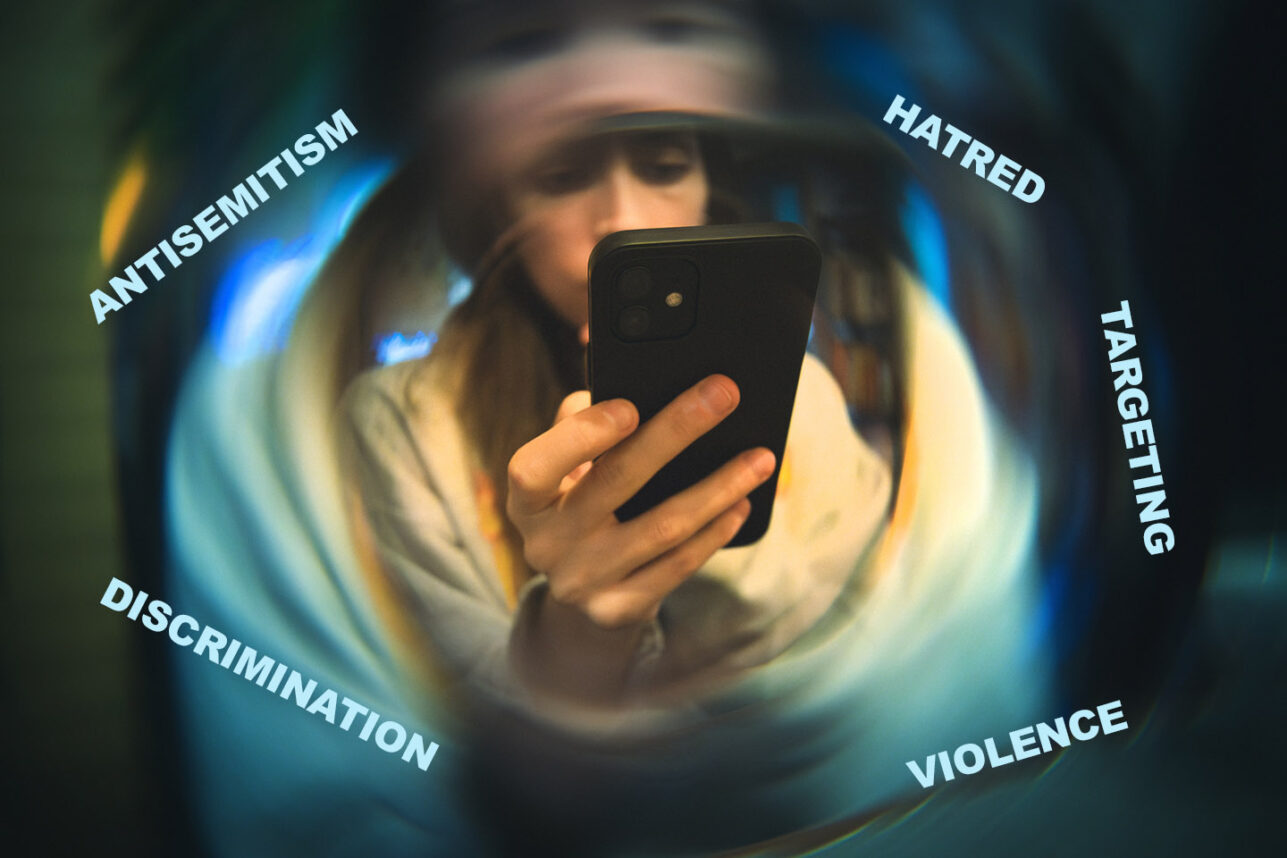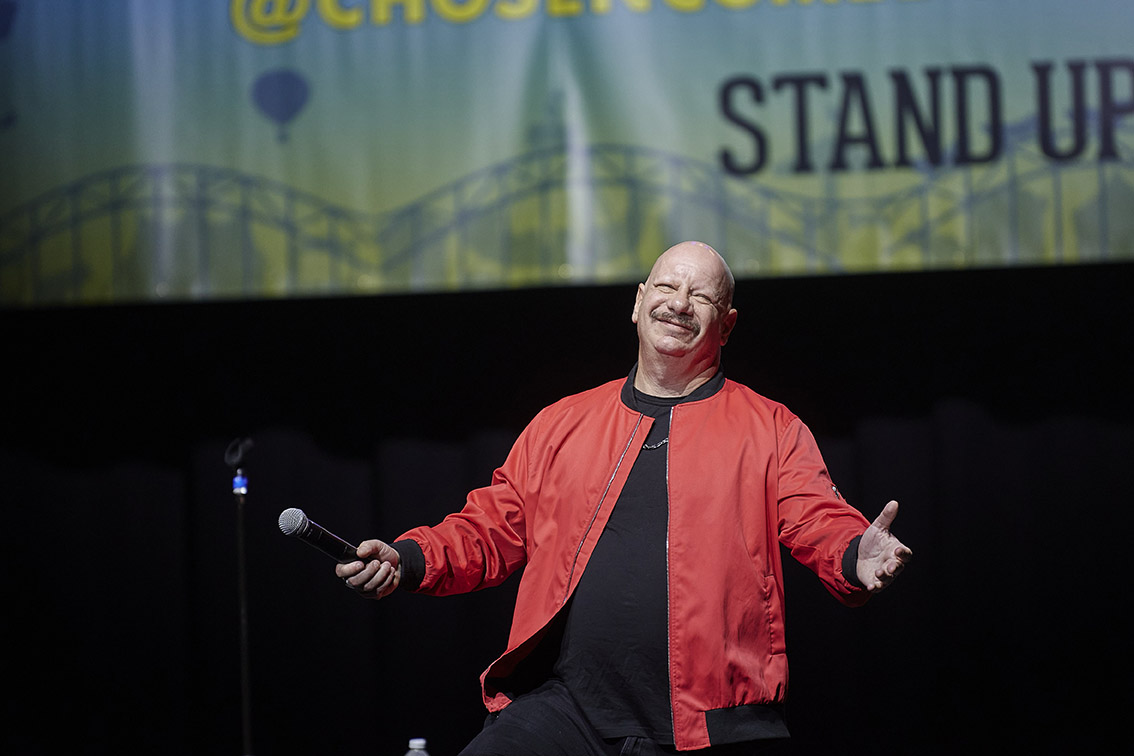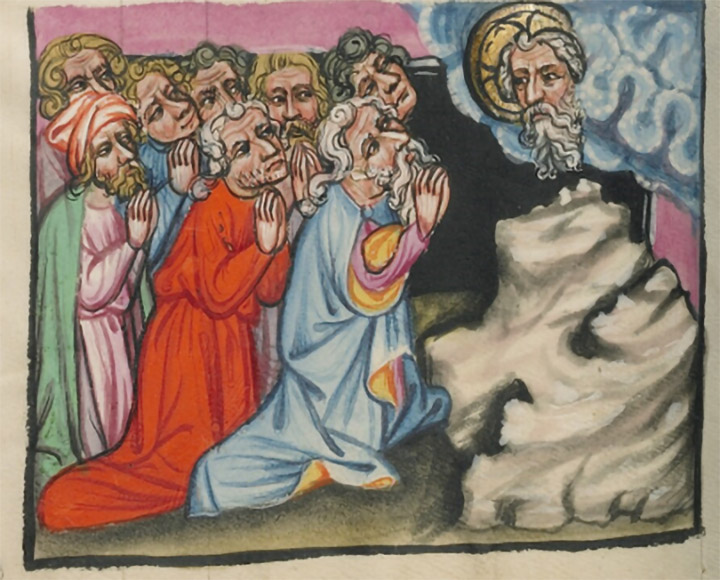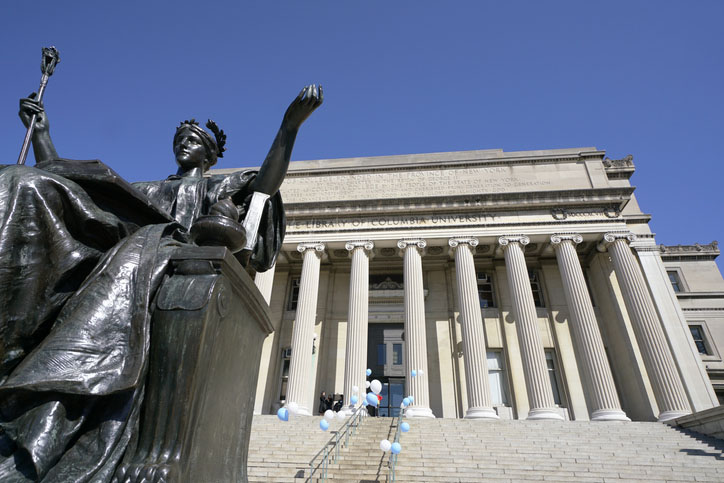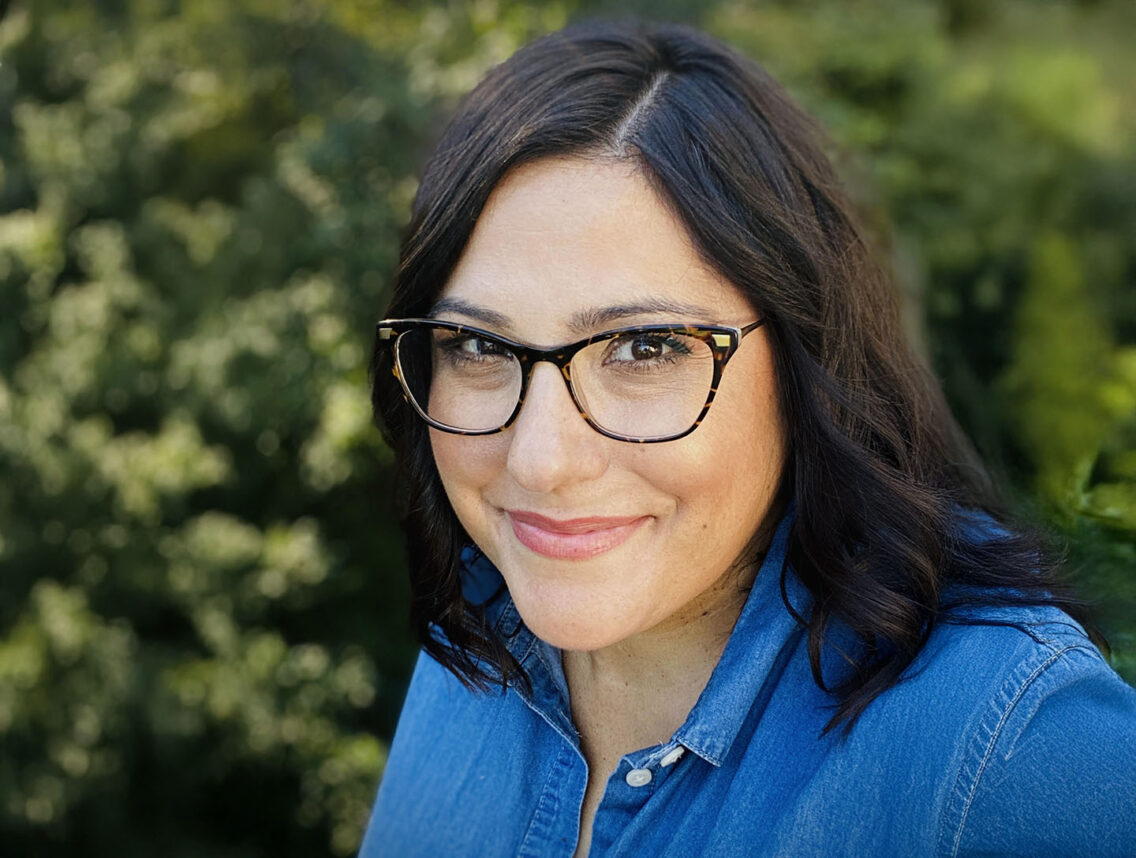
I was so nervous when I knocked on Gregg and Debbie Oppenheimer’s door last month. You see, Gregg’s father, Jess, z”l, was one of my favorite writers of the twentieth century.
I should probably explain that Jess only wrote one book. Sadly, he had written only the beginning of his memoir when he passed away in 1988 at the age of 75. But to me, Jess actually wrote 153 books, each more delicious and unforgettable than the last.
Who was Jess Oppenheimer? He was a hilarious Jew from San Francisco who happened to be the creator, head writer and producer of “I Love Lucy.” And each of those 153 “books,” for me, was an episode of the legendary show.
I only had one chance to make a first impression with Gregg, who completed his father’s memoir in 1996 and who graciously agreed to let me interview him for this week’s cover story for Father’s Day. Not surprisingly, I blew it.
As soon as Gregg opened the door, I blurted out, “Hi, Jess!”
He smiled and told me this kind of thing happens all the time. I told him he could call me Toby, Totie, Tammy or Arnold, just to level the playing field.
I had always wanted to interview Gregg and write about his father. “I Love Lucy” holds a very special place in my heart. It’s beloved by millions worldwide, but in reflecting back on my childhood as a newly-arrived refugee in 1990s America, I now understand why I needed “I Love Lucy” so badly: Simply put, when I came to this country, I was awkward, broke and unable to assimilate. I watched contemporary TV shows (as many as basic cable would allow), such as “Beverly Hills 90210” (the original), “Full House” or “Saved by the Bell” and salivated over the young characters’ looks, clothes and social lives. And I knew I could never attain any of them.
But “Lucy” was different; it wasn’t a constant reminder of how I fell short or how I was supposed to look, talk or act in the early Nineties, because it was filmed in the 1950s. If anything, compared to how everyone dressed on “I Love Lucy,” I looked downright cool in my Kmart dress and Payless shoes. Plus, it was one of the greatest TV shows of all time.
And there was something else: “I Love Lucy” was the only show I could watch with my mother and father (newly-arrived refugees themselves) that all of us loved and understood. You didn’t need to speak English to understand that an ambitious housewife had ingested too much alcohol from a product during a rehearsal for a TV commercial. In fact, one of the first words I learned in English, right after “discount” and “Nair” was “Vitameatavegamin.”
Few know that “I Love Lucy” was actually based on a radio comedy program called “My Favorite Husband” featuring Lucille Ball and Richard Denning (and written by Oppenheimer, Madelyn Pugh and Bob Carroll, Jr., all of whom wrote “I Love Lucy” a few years later). Many of the famous storylines and jokes from the TV show were originally used on “My Favorite Husband.”
But to truly understand how “I Love Lucy” was born, one must read about the life of its creator, Oppenheimer. His memoir, “Laughs, Luck … and Lucy: How I Came to Create the Most Popular Sitcom of All Time” (Syracuse University Press, 1996) is not only one of the best memoirs I’ve ever read; it should be standard reading for anyone contemplating a career in writing, comedic or otherwise. Most of the memoir was lovingly written by Gregg in the 1990s. To find out how he was able to undertake the monumental task of writing in his father’s voice and sharing incredible stories of Old Hollywood, read this week’s cover story. I’ve never worked so hard on a cover story, and I’ve never had more fun researching and writing one.
I gleefully marked up the entire book, including my favorite line, Oppenheimer’s observation at the outset of the memoir: “I am firmly convinced that having some kind of serious maladjustment in childhood that gives you an offbeat slant on life is one of the most important prerequisites for a comedy writer.” How deeply I understand this wisdom.
Oppenheimer’s favorite episode of “I Love Lucy” was “LA at Last!” (1955), in which a star-struck Lucy meets William Holden at The Brown Derby. It’s also Gregg’s favorite episode. I have my own favorites, including the time Lucy, Ricky, Fred and Ethel visit Ethel’s hometown of Albuquerque; or the time Lucy accidentally films over Ricky’s Hollywood pilot with fantastically poor home movies. But, if you ask me, for a sample of Oppenheimer’s greatest writing, it all comes down to the 1952 episode, “Lucy Gets Ricky on the Radio.”
Mistakenly believing that Ricky is a genius when it comes to trivia, Lucy signs both of them up for a husband-and-wife radio quiz show. Mortified, Ricky responds, “All I know is that Columbus discovered Ohio in 1776.” Desperate to save face, Lucy visits the host of the show and steals the answers to several questions. Unbeknownst to her, during the live program, the host switches the questions. What follows is some of the best writing in television history:
Question one: “What is the name of the animal that fastens itself to you and drains you of your blood?”
Lucy confidently blurts out, “The collector of Internal Revenue.”
Question two: “What is a senator’s term of office?”
Lucy responds with an answer she had memorized about trees: “The sap runs every two years.”
Ricky begs her to let him answer the next question: “Why did the French people put Marie Antoinette under the sharp blade of the guillotine?”
When Ricky can’t respond, Lucy whispers her memorized answer in his ear, and Ricky happily declares, “To scrape the barnacles off her hull.”
As a kid, I chuckled at Lucy and Ricky’s responses. But it wasn’t until I became an adult and actually understood the depth of the jokes that the episode actually had me howling. The jokes, Gregg told me, were probably first written for “My Favorite Husband.”
During our interview, I asked Gregg if I could photograph him holding his father’s Emmy (Oppenheimer won two Emmys for “I Love Lucy” and was nominated for five). Amazingly, Gregg asked me if I wanted to hold it. I was overwhelmed.
As I looked down at the inscription (“Best Situation Comedy of 1952: I Love Lucy, Jess Oppenheimer, Producer and Head Writer”), I channeled Oppenheimer, the bald comedic genius who forever changed television…and me. I held the Emmy in my hands for a long time and looked lovingly at its 70-year-old sheen, slightly faded in one or two places. How quickly I began to tear up as I held that statue close to me.
Only in America could a Jewish refugee from Tehran who came to this country in the late 1980s be afforded the chance to hold the Emmy of a brilliant Jewish writer from San Francisco, who wrote about the antics of a redhead and a Cuban in New York.
Only in America could a Jewish refugee from Tehran who came to this country in the late 1980s be afforded the chance to hold the Emmy of a brilliant Jewish writer from San Francisco, who wrote about the antics of a redhead and a Cuban in New York. And over 70 years ago, at that.
Oppenheimer left so much to Gregg and his daughter, Joanne. I don’t have an Emmy, but I do possess a fantastically marked-up copy of “Laughs, Luck … and Lucy” to pass down to my kids.
Isn’t it amazing that seven decades later, everyone still loves Lucy? That includes me. But the comedic genius I really treasure?
That’s easy. I love Jess.
Tabby Refael is a Los Angeles-based writer, speaker, and civic action activist. Follow her on Twitter @TabbyRefael










